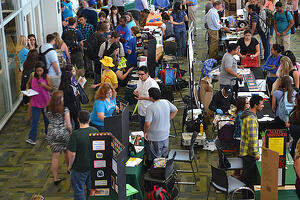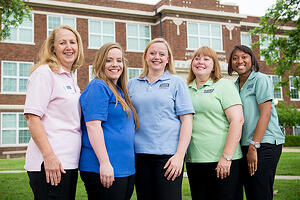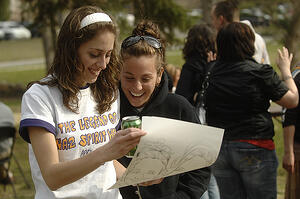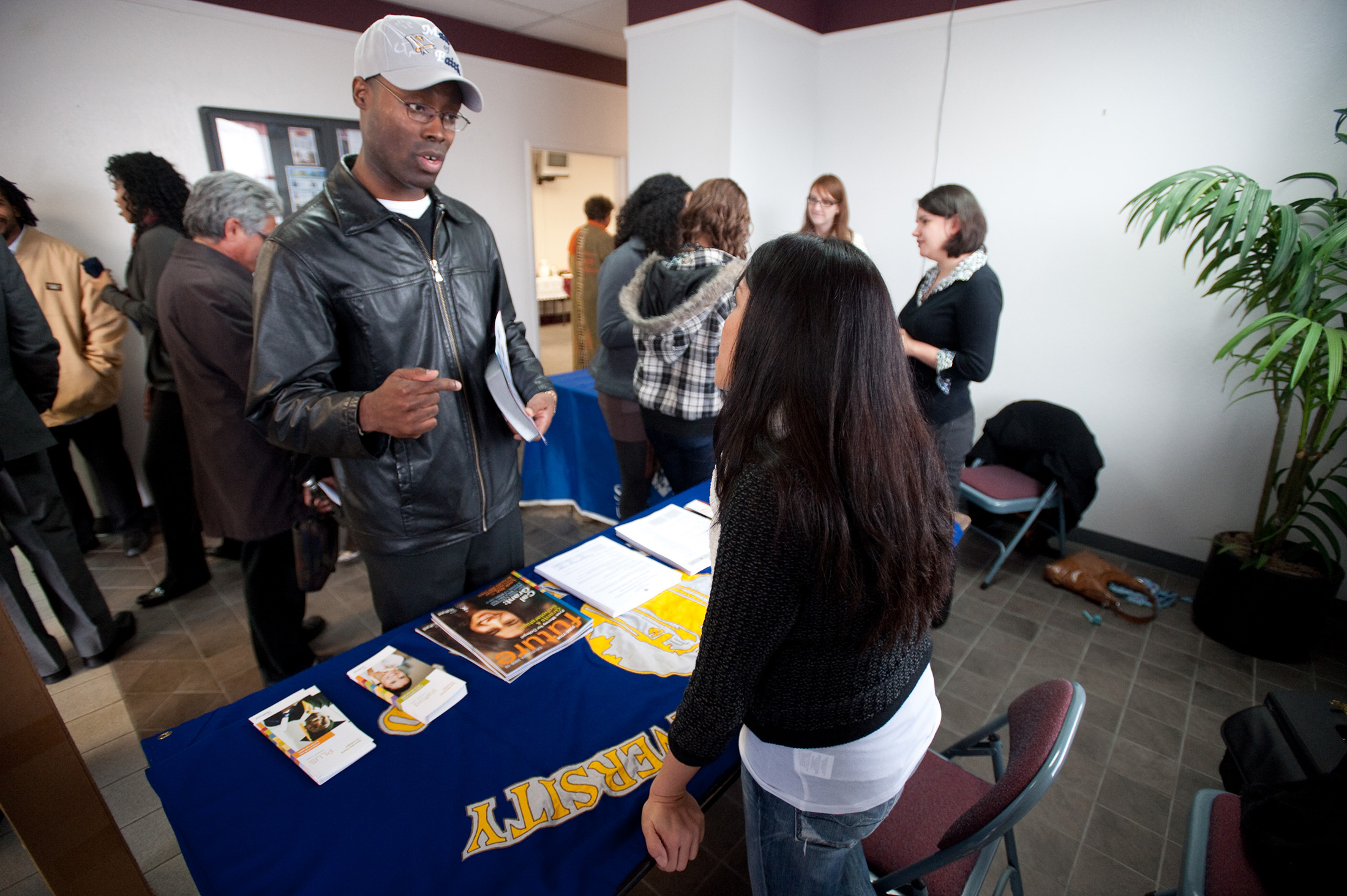When newcomers arrive on campus visits, where do they go to for all their information? The obvious answer might be the admissions office, as well all the go-to folks college admissions counselors are expected to parade around for prospective students.
However, there are a few other places students are able to go to find out the necessary information they are looking for while determining what school to go to. The following might be a list of sources you may not normally think of for this kind of information, but can be quite helpful.
Related post: Are You Making These Undergraduate Enrollment Management Mistakes?
 |
| Image by Flickr user COD Newsroom |
One group of sources students can take advantage of for information would be the experiential ed, internship coordinators, or co-op program directors. These are the people who will know what is available in the intersection of education and getting life experience. Many students start school initially planning what will happen while they are your institution, instead of also how to start gaining real-world experience. This is an important area to take advantage of while at school to gain career experience for post school endeavors. These people can look at the experience students already have coming into college, and help them apply those to future ventures. Aside from how to apply students’ skills, they also know what organizations accept and welcome what skills. Different organizations are looking for students who can apply their knowledge productively in that organization, as well as help students use their gained experience to better skills they already have. Being new to campus and unaware of all the opportunities and organizations available to them, students will be able to take advantage of such knowledge from internship coordinators and co-op directors who can point them in the right direction.
 |
| Image by Flickr user TAMUC |
Another office students might be unaware of is the placement office. This office is another place where students can go to while thinking ahead for post grad planning or career building opportunities. The placement office can help give students a sense of what they will be doing after graduation, such as help with job searching, or even local job availability. They will also be able to give students a sense of what businesses and organizations recruit from campus, so students can start applying their skills right away instead of waiting until after graduation. This includes internships, volunteer work, or even jobs; anything to help gain experience while still at school. If students have a full schedule and aren’t able to fit in any extra jobs or interning into their already busy schedule during the semester, the placement office is also available to help find summer openings for students to take advantage of. No matter the time of year, the placement office will have a list of opportunities for students to gain experience for their career while still taking in school.
Another office that may not be an obvious choice to students to use would be the managing/clerical staff or college/program offices. These are the people who usually keep calendars for faculty and offices. They are the experts on everything going on campus wide. These offices can help students know who is coming to campus from performances to speakers, anyone visiting campus who can give some insight on their interested field. They also know what programs are going on, and are able to give all specifics on how to sign up for them, such as when, cost, the people/organizations involved, or what level of experience one needs to participate. Another area these offices can help with is give information on the cool things alum and faculty are doing, including interesting opportunities off campus, to valuable work they are doing to better the institution, as well as how students might be able to get involved. And last, but definitely not least, they can give information on who has received fellowship or scholarships as well as give a list of similar future opportunities available to students to take advantage.
 |
| Image by Flickr user Nazareth College |
Speaking of cool things going on around campus, other sources to look into could be the student activities coordinator or student center director. They will have the necessary, more every day information about campus students will need to learn such as where the food courts are and the hours they are open. A huge necessity for students is where to get their books; if there is more than one place, these sources will be able to tell you. They will give you hours of operation as well as which place will be more helpful for the students need if applicable. Another way to take advantage of this source is to find information about the gym and recreation areas. Being on campus can be stressful, and exercise becomes a regular outlet for many students. This can be anything from finding out information on the weight room to the hours the basketball courts or pool is open. There is a whole list of scheduled recreational sports and activities throughout the year, as well as when these areas are open to free time. These coordinators will already have a list of these for the whole semester or possibly the year so students can plan accordingly. They will also be able to give a list of other regular scheduled activities going on around campus as well as times, or seasonal projects students can become involved it. They can give students all of the information needed to give them a sense of life beyond the classroom.
Similar to the student activities coordinators, students may also take advantage of the residence life staff. They are also available to help students create a life outside the classroom. They specialize in the area of making life in residence halls more homey. Considering students will be spending a lot of time around residence halls, these are the people to talk to when adjusting to dorm living. Residence life staff are the go to if you have any questions about campus, such as what different facilities are and operating hours. They can give you general information on all the programs going on around campus from a more personal source if students don’t want to travel to one of the offices mentioned above. They can also give students an insight on what to expect when they move to campus from their own experiences. This can include anything from life in the dorms to balancing their school schedule and social life, as well as the best way to integrate extra curriculars into their already busy schedule. These are the people who will be able to give first-hand experience as a source, making students feel more comfortable adjusting to campus life.
Many prospective students who are visiting campus have no idea what to expect just yet. Therefore, they are looking to find out as much information as possible. Though the admissions office screams information for newcomers, these are a few other sources students can take advantage to find out more specific information they need to know when starting their new lives on campus.
Photo credit goes to Flickr user San Jose State University



